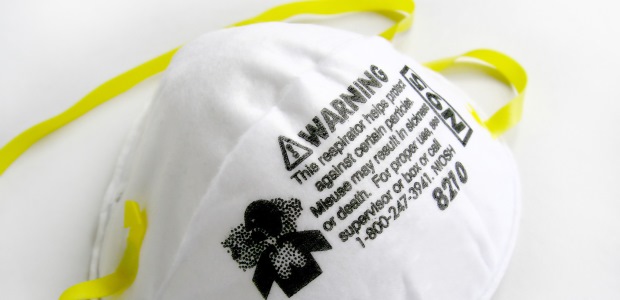
NIOSH Considering Respirator Approval Process Changes
A new request for information and comments asks whether health care end users want requirements and tests in the process to parallel those in FDA's clearance process for surgical N95 respirators.
NIOSH has published a request for information and comments that asks whether health care end users want requirements and tests in its 42 CFR Part 84 respirator approval process to parallel those in FDA's clearance process for surgical N95 respirators. This would be useful for health care workers who need protection in future pandemic events and also in day-to-day use in health care settings, NIOSH states in the notice published March 14 in the Federal Register.
FDA's process includes requirements for fluid resistance and flammability that are not now in the NIOSH process. Because of the potential for splashes and sprays, some health care facilities have chosen NIOSH-approved, FDA-cleared surgical N95 respirators at their primary option for use during a pandemic. But the notice states that other NIOSH-approved respirators might still be needed because there may not be enough FDA-cleared respirators available to protect essential personnel during a pandemic, it adds, citing a CDC estimate that 90 million N95 filtering facepiece respirators would be needed to protect the U.S. health care workforce during a 42-day pandemic event, based on the rapid increase in respirator usage that occurred during the 2009 H1N1 pandemic.
The notice asks:
- Do health care stakeholders anticipate expanding the use of protective respirators to include elastomeric air-purifying respirators or powered air-purifying respirators?
- For protections appropriate for respirators used in surgical or non-surgical health care environments, should NIOSH consider adding tests to the Part 84 conformity assessment process for splash/spray protection per ASTM F1862:2000a or other standards?
- For protections appropriate for respirators used in surgical or non-surgical health care environments, should NIOSH consider adding tests to the Part 84 conformity assessment process for flammability hazards per 16 CFR 1610, UL 2154, or other standards?
- For protections appropriate for respirators used in surgical or non-surgical health care environments, should NIOSH consider adding optional, supplemental filtration testing?
NIOSH asked for comments to be submitted within the next 30 days and says in the notice that it intends to post a document in the docket (Docket No. CDC-2014-0005 and NIOSH-272, www.regulations.gov) no later than June 30 that spells out the next steps it plans to take with this initiative.